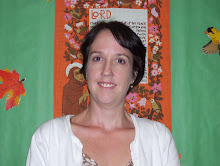The Continuous Improvement Cycle
The observation, supervision, and improvement of teaching of mathematics should include a periodic collection and analysis of a lesson plan, evaluation of professional growth based on analysis of teaching and students performance, and the improvements made in students performance resulting from professional growth (Martin, 2009). Educators should strive to look at ways to improve instructional techniques within their classrooms. This will improve student mastering of mathematical concepts. As teachers we need to look at a ways we can improve professionally by attending workshops, college classes, and observations the techniques of peer teachers (NCTM, 2007). We need to look at strategies to improve students understanding of mathematical concepts and one way to accomplish this task is to understand how to implement differentiated instruction techniques to lesson plans.
Teachers as Participants in the Observation, Supervision, and Improvement
Teachers need to take the time to analyze their own teaching methodology, have time to collaborate with colleagues, and be interaction with administration to establish standardized tools and approaches for improving mathematical teaching. We play an important role when improving the delivery of mathematical instruction (NCTM, 2007).
Data Sources for Observation, Supervision, and Improvement of Mathematics Teaching
When looking at ways to improve the mathematical teaching of our students it is key to providing educators with techniques that support improvement. Observation and guidance from administration alone is not enough. We needing this process of observation to include the feedback from our peer professionals to create news ideas and opportunities to improve teaching. Using this information to form a plan to which our students are engaged in the learning process. This includes the careful attention of the ongoing instructional improvement sharing of materials, strategies and encourage when we collaborative plan activities (NCTM, 2007).
Teacher Knowledge and Implementation of Important Mathematics
To assess the improvement of the teaching we must acknowledge that the teaching of mathematics include; sound knowledge of the skill, connection to daily living. When developing student math activities the teacher need to explore problems that can be applied to real world situations taking advantage of the interest and experiences of a student to help them understand the application of mathematical concepts. No longer asking student only to simply calculate problems from their text books. We need to have them apply that understanding to real world situations (NCTM, 2007).
Teacher Knowledge and Implementation of Effective Learning Environment and Mathematical Discourse
By implementing discourse in the classroom we are looking at teachers to effectively communicate mathematical concepts in a positive learning environment. This effective discourse includes the promotes the understanding of mathematical concepts through procedures that make connections. Engaging the student in ways that extends the students understanding of concepts taught. To align with mathematical concepts where the students can relate understanding and apply that understanding to real world examples and to be able to communicate that mathematical to both the teacher and to fellow classmates (NCTM, 2007).
Reference List:
Herrera, T., Kanold, T. D., Koss, R. K., Ryan, P., & Speer, W. R. (2007). Mathematics Teaching Today: Improving Practice, Improving Student Learning. Reston: The National Council of Teachers of Mathematics, Inc.
Subscribe to:
Post Comments (Atom)

No comments:
Post a Comment